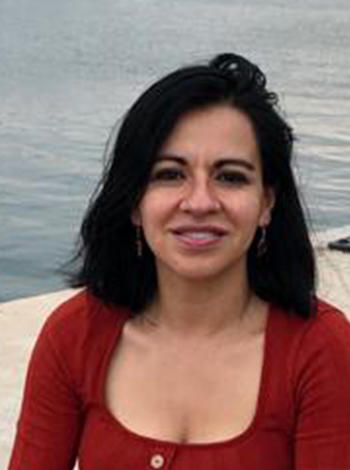Karina Sánchez Cortes

International Research Training Group 'Temporalities of Future'
Dynamics of Aspiration and Anticipation
PhD Candidate
Project: "Gender and Social Inequalities in Higher Education Admissions: The 2016-1 Undergraduate Generation at the UNAM"
Project: "Gender and Social Inequalities in Higher Education Admissions: The 2016-1 Undergraduate Generation at the UNAM"
Supervisor:
Prof. Dr. Marianne Braig, Freie Universität Berlin
For a long time, women's access to higher education was extremely restricted because “traditionally” it was thought that formal university education was a space reserved only for people with specific social conditions, who were mostly men of high social classes. It was until the second half of the twentieth century, in the framework of processes of expansion of higher education systems and social transformations linked to the claim of rights of minorities and vulnerable groups, that women began to be incorporated systematically and increasingly in universities and institutions of higher education. Its participation in the global enrollment of higher education grew from less than 30% in 1970 to more than 50% in 2010, in Latin America it was from less than 30% to almost 60%; and, specifically in Mexico, from less than 30% to a little more than 50%.
Women's access to higher education expresses, to some extent, social changes related to the conception of the "must be" of women and men in education. This fact is sociologically relevant since education in general and the higher level in particular can now be conceived as a liberating and empowering environment for women's autonomy. However, education is also a social institution in which mechanisms of transmission and reproduction of a regime that structures the perception and organization (concrete and symbolic) of all social life based on sex and that establishes unequal parameters in the access, use and disposition of educational resources to each student.
With this backdrop, in this research I propose the existence of an inequality based on the structuring and prevalence of a gender regime that is specifically expressed in career selection and income differentiated by sex in the fields of knowledge and careers. Although women have a greater presence in most fields of study and in most careers, there are fields of knowledge where the increase in women has been very limited and has historically had a greater male presence. Specifically, in the fields of study and careers related to engineering and “exact” sciences, we find that the presence of women is minimal and their incorporation has not occurred in the same magnitude as in other fields of study. Worldwide around 30% of women entering higher education choose a career related to the fields of exact sciences, technology, engineering or mathematics. It is particularly low in communication technologies (ICT) (3%), natural sciences, mathematics and statistics (5%) and engineering, manufacturing and construction (8%).
Punctually, I am interested in knowing how this gender inequality is expressed in admission to the National Autonomous University of Mexico and how it intersects with other inequalities such as socioeconomic. In this sense, I ask what are the social, personal and academic conditions that define the trends of students entering different areas of study and careers? And, specifically, in the context of this income differentiated by sex, what factors influence women to break with the traditional schemes and choose to enter careers that are symbolically considered only for men.
Studying these young women is relevant because, as Simone de Beauvoir expressed, as privileged women who seek in their profession an economic and social autonomy. We must know them to answer the question about the possibilities of women and their future.


